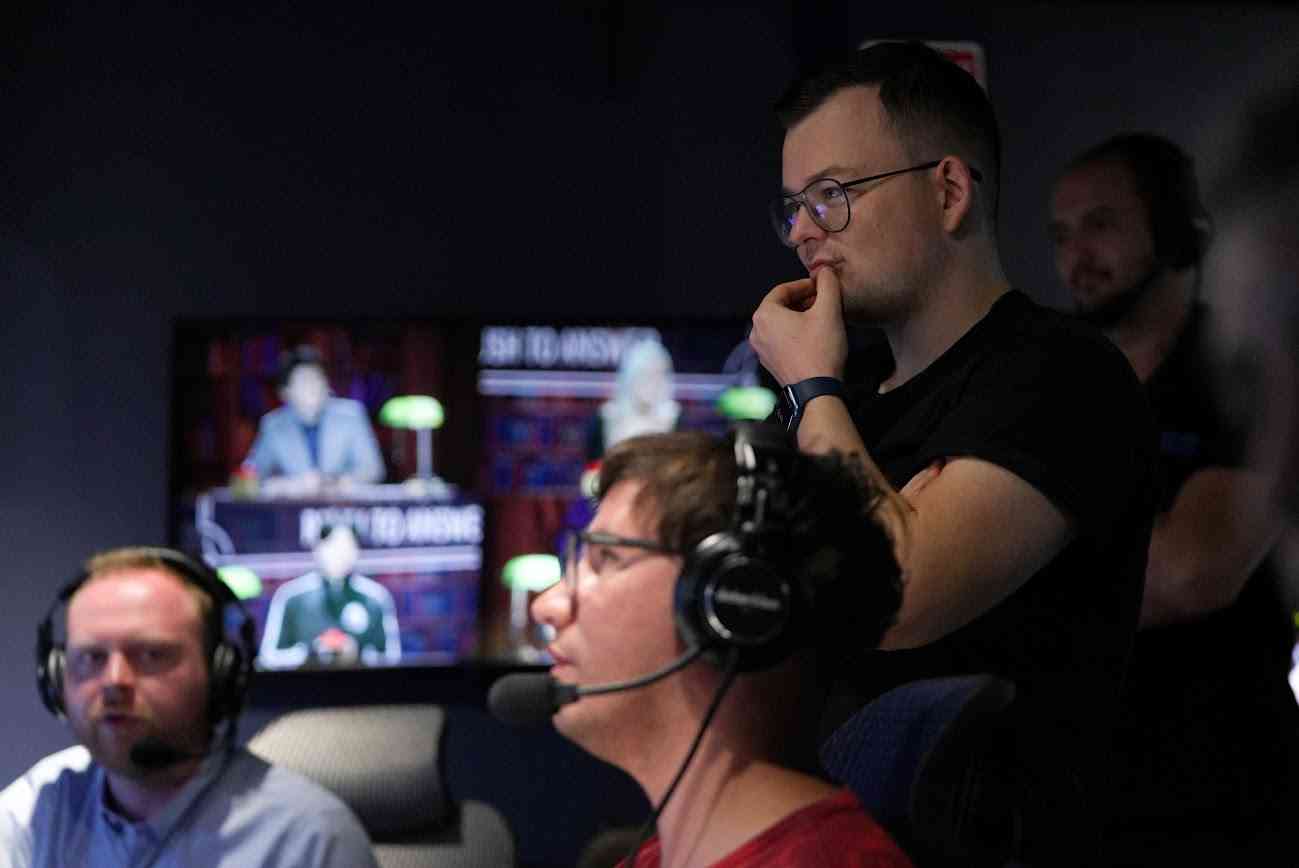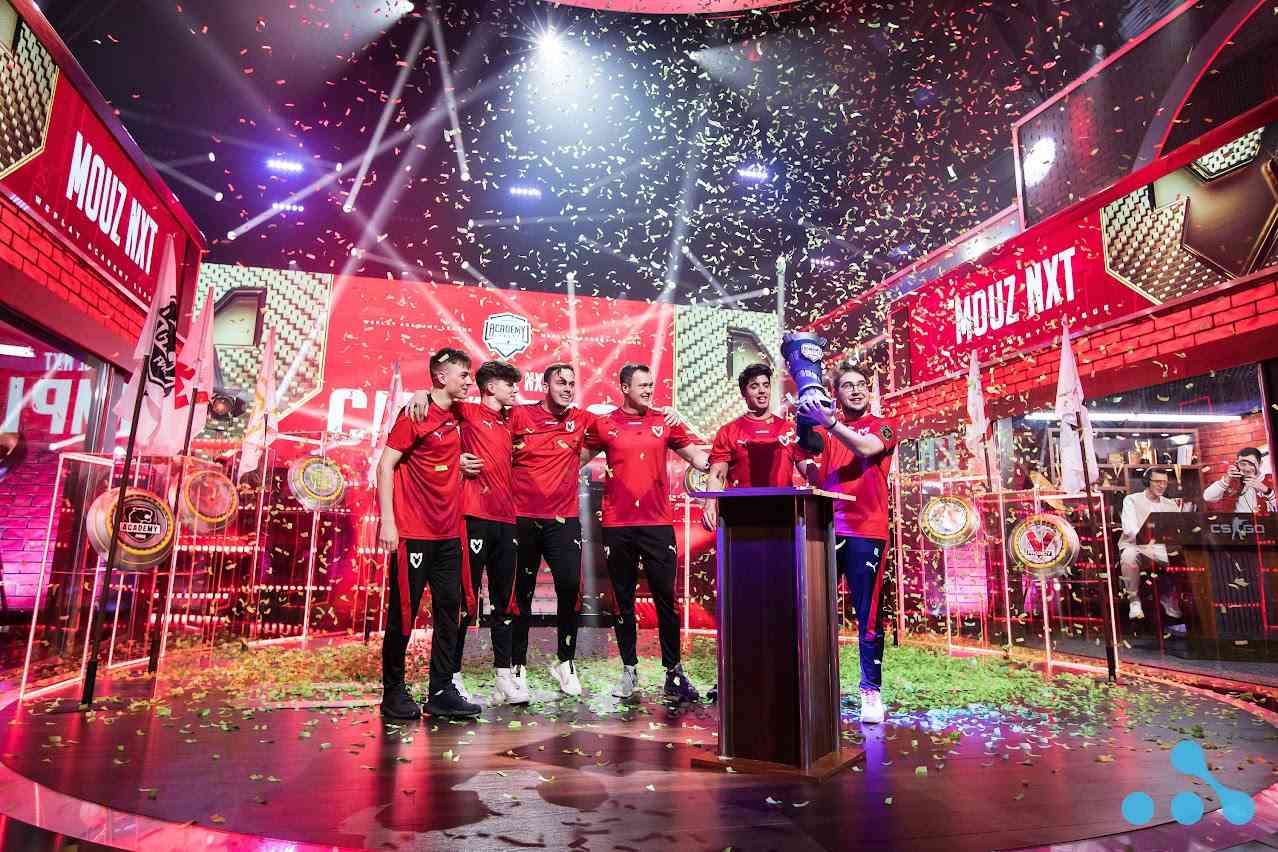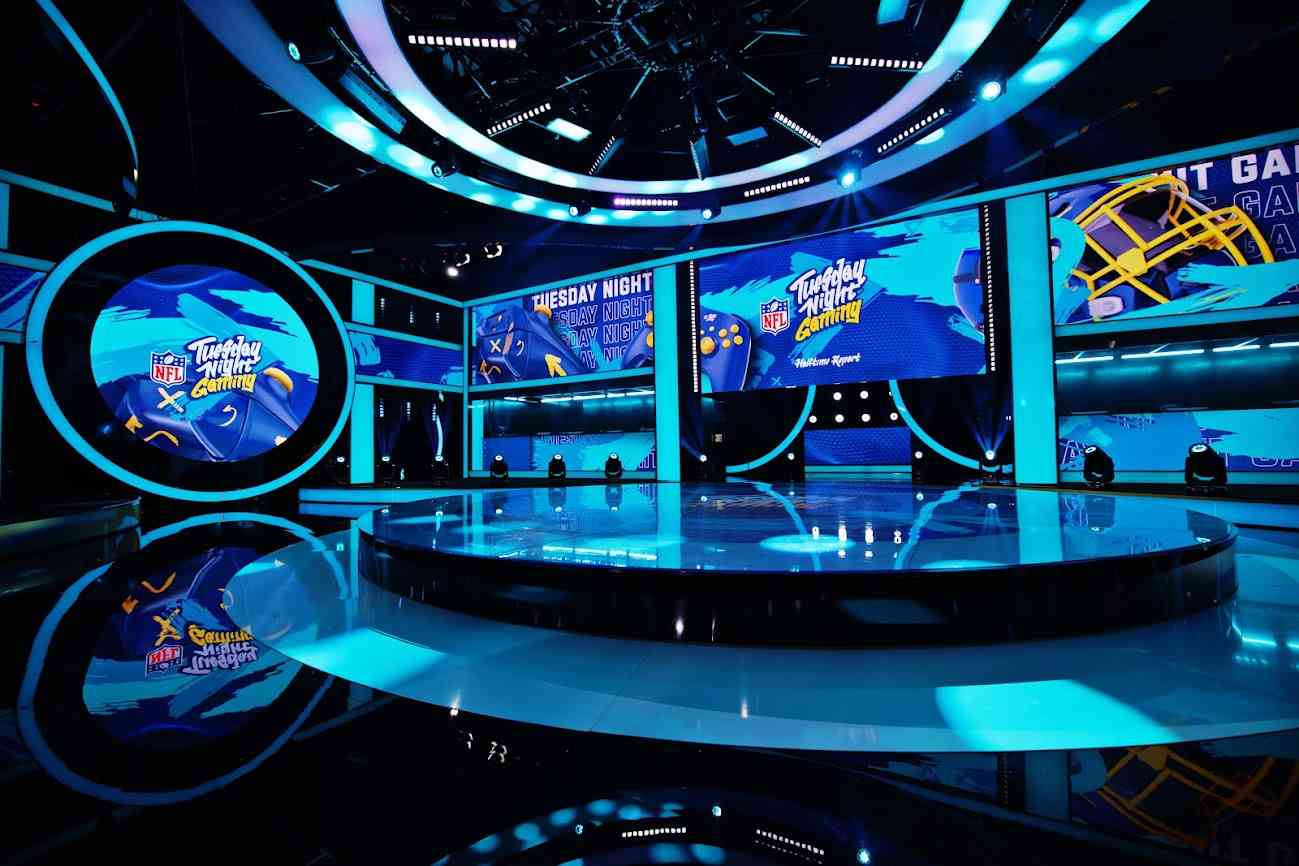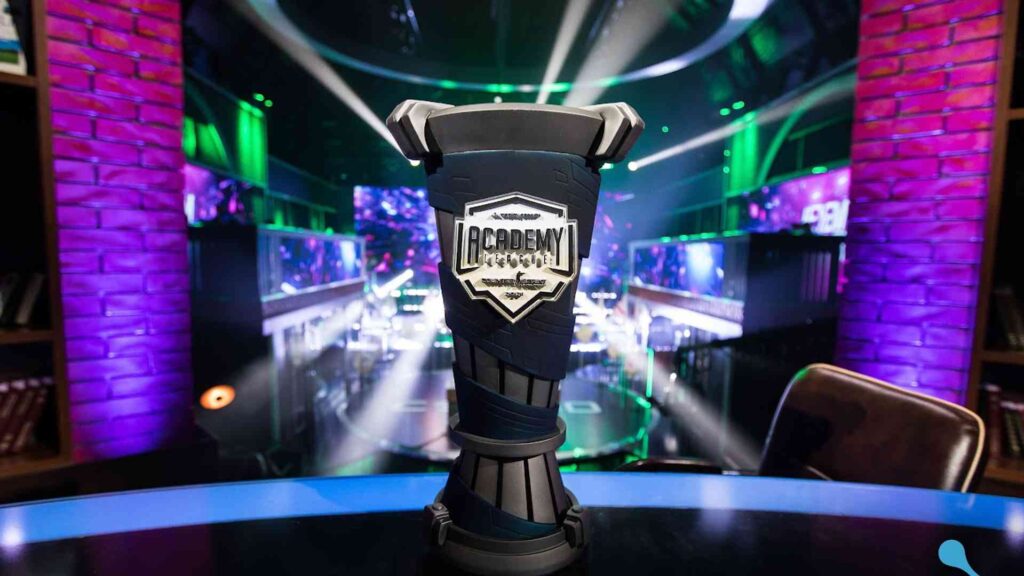WePlay has been a prominent fixture in the esports tournament operator scene for quite some time now. Hosting the Dota 2 Animajor, the WePlay Esports Rocket League Invitational and the WePlay Academy League for CS:GO, just to name a few. But they’ve been seen less frequently in the tournament scene recently, and for good reason.
We sat down with Maksym Bilonogov, general producer and chief visionary officer at WePlay Esports, to talk about how the war in Ukraine has affected their esports endeavors, as well as the company’s plans for the upcoming year.
 Maksym Bilonogov has helped navigate the new reality of being a TO in a country at war. Credit: WePlay Holdings
Maksym Bilonogov has helped navigate the new reality of being a TO in a country at war. Credit: WePlay HoldingsContents
The effects of the war in Ukraine
In 2022, WePlay’s contract with their partner organizations in the Academy League came to an end. “Starting from the last day of the WePlay Academy League Season 6, our team was thinking about possible formats for hosting the next WAL seasons and keeping up negotiations with the teams,” Bilonogov said.
The reality of the ongoing war means “in the current conditions, it is impossible to hold this tournament at the level that we set for ourselves at the start of the project.”
When WePlay launched their CS:GO Academy League their aim was to create “a platform for development, practice, and self-expression for junior teams.” According to Bilonogov, the experience playing in the LAN format was “a must” for WePlay’s vision.
The issue of safety for both competing players, many of whom are still minors, as well as that of its tournament staff is a top priority for WePlay. And as Bilonogov candidly points out, “There is still a war going on’¦That is why the best thing we can do for now is to suspend the League.”
 MOUZ NXT were an early beneficiary of the opportunities provided by the WePlay Academy League. Credit: WePlay Holdings
MOUZ NXT were an early beneficiary of the opportunities provided by the WePlay Academy League. Credit: WePlay HoldingsBut of course, it isn’t just the Academy League that’s suffered interruptions over the past 14 months. “2022 was perhaps the most difficult period for WePlay Esports in the entire company history ‘ in terms of company activities, working conditions and challenges,” said Bilonogov.
After the beginning of the war with Russia, Bilonogov says one of WePlay’s first actions was to begin the process of terminating any contracts or negotiations they had with companies from Russia and Belarus. “We were among the first in esports to take this step,” He said.
On top of breaking off their business deals, WePlay’s team also refused to cover esports events in Russian on their official channels. “At that time, the rights to Russian-language coverage of the BLAST Premier 2022 series belonged to us ‘ we passed them to one of our talents. Instead, WePlay Esports started broadcasting BLAST Premier 2022 in Ukrainian,” Bilonogov explained.
But these decisions didn’t come without consequences. 70% of WePlay’s tournament schedule, which they’d planned six months in advance, was postponed. Even ideas for new formats were put on the back burner while the team dealt with the impacts of living and working during a war.
Now, however, things are looking a little more stable. Their office in Kyiv “is operating at full capacity,” with “round-the-clock electricity supply and a stable internet connection.” Despite this, WePlay advise employees not to visit the premises unless absolutely necessary.
WePlay are also still using their Kyiv studio. In 2022 they were the production partner of one of Ukraine’s local media services, MEGOGO, for the Ukrainian-language broadcast of the 2022 FIFA World Cup. This year in February, they announced their continuing partnership with MEGOGO, broadcasting sporting events in Ukrainian from their studio. However, the WePlay Esports Arena Kyiv “is closed until better times,” said Bilonogov, “nothing’s happening there.”
Still, Bilonogov and the team have a positive outlook.
“Despite all the bad things, there were good moments that are worth being highlighted,” He said. “We at WePlay are working to ensure that there are only more reasons to be proud.”
WePlay Media Holding, WePlay Esports and the Ukrainian government sanctions
Reports have listed WePlay Media Holding alongside other companies under sanctions by the Ukrainian government. However, WePlay Media Holding and WePlay Esports are, according to Bilonogov, wholly separate entities.
“Weplay Media Holding Limited has had nothing to do with the work of WePlay Esports and WePlay Holding for several years already,” He said.
As Maksym explains: “At the beginning of our path, in 2018, our company entered into cooperation with the JKR investment fund, a company affiliated with Parimatch. JKR owned a minority stake in WePlay (13.8%), and our enterprises worked together to create new products and services for the betting industry.” However in 2019, WePlay “decided to end the cooperation,” and their share of WePlay (all 13.8%) “was bought out by the founders of WePlay Esports.”
When the agreements terminated, a number of subsidiaries and products which WePlay weren’t interested in developing were transferred back to the JKR fund. “One such company that came under the control of JKR (Parimatch) was Weplay Media Holding Limited.” Said Bilonogov. “WePlay Esports is not under sanctions.” He reiterated, “We have all the permissions for our activities in all markets where we are represented.” Also adding the organization was “open to cooperation” and that WePlay had “nothing to hide either from the state or from the audience.”
Recovering and rebuilding, but not rebranding
Despite the difficulties, the team at WePlay have continued to build on their former success. And throughout the turmoil of 2022, there were some bright points.
“We managed to open a new office in the United States of America and the WePlay Esports Arena Los Angeles,” Bilonogov said, before adding they also launched a strategic partnership with One True King (OTK), a large gaming influencer brand based in the United States.
 WePlay’s Los Angeles Studio hosting an NFL event. Credit: WePlay Holding
WePlay’s Los Angeles Studio hosting an NFL event. Credit: WePlay HoldingAdditionally, since their broadcast of the 2022 FIFA World Cup, WePlay has dipped their toes further in the traditional sports pool.
“In September 2022, we became the official production partner of Enthusiast Gaming for the NFL [National Football League] Tuesday Night Gaming project, an online show for audiences in the U.S. and Canada,” Bilonogov explained. The Tuesday Night Gaming project streams on YouTube and brings current NFL stars and legends together with top gaming influencers to compete against one another in various popular gaming titles.
On the home front, WePlay is focusing on creating and developing Ukrainian-language content. “Our team has developed various formats of shows and interactions for our talents, which will soon be available to viewers,” Bilonogov said. “For example, one of our talents, Oleksii ‘yXo’ Maletskyi, launched his YouTube show ‘ÐÑÑа Шођ (Vusa Show), where he speaks to famous representatives of Ukrainian esports’¦”
And while they’ve enjoyed their journey, diversifying the kind of content they produce, they’re not planning on leaving esports any time soon.
“I will be honest with you; we have never been interested in making small events and “regular” tournaments,” Bilonogov said. “We have always wanted to create history. From the first day of WePlay Esports, our dream was to create large projects that would live on in the memory of the audience even after they were over.”
It’s something which he acknowledges the team has achieved in their work so far, “the WePlay AniMajor, WePlay Academy League, WePlay Esports Invitational featuring Rocket League ‘ all these and many other projects are still widely remembered and discussed.”
But for the moment, esports is on the back burner.
“During wartime, it is impossible to hold large-scale events in Ukraine due to safety reasons, and investing in small projects is also too risky from an economic perspective ‘ you cannot be sure they can be monetized or are necessary in an oversaturated market.” Maksym explains.
“Nevertheless, we are not leaving esports. Currently, talks are underway about several esports projects, but they definitely do not fit into the description of “smaller events.” I hope you will hear about them in time.”
For further coverage of the Ukrainian government’s crackdown on Russian-affiliated esports companies, check out BLIX’s coverage of Partimatch’s shutdown.


